Popular music is primarily about showmanship, which in turn is partially about making a tremendous ass out of yourself. Whether they go with a bizarre costume or a strange character, musicians have been utilizing alter egos for decades now, with varying degrees of success.
1.
The Thin White Duke
By the mid-seventies, David Bowie had established himself as the “chameleon of pop,” able to move from genre to genre while heralding new innovations in music itself. He was also known for playing characters developed around theatrical stories, both of which would be incorporated into live shows. His most famous persona is no doubt Ziggy Stardust. His most controversial, however, would later prove to be the Thin White Duke.
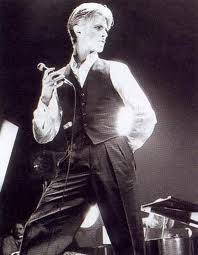
The Duke’s persona was adapted in 1976 for the album Station to Station. Unlike previous characters, the Duke came the closest to simply being David Bowie, though his increased drug habit had lead to more outlandish behavior. The Duke was himself a relatively subdued character, singing on an intense emotional level despite being rather detached himself. His cold nature related back to Bowie’s obsession with the Third Reich which manifested itself during various interviews (Bowie claimed several times that he had a fondness for fascism and that Hitler himself was the world’s greatest rock star).

“Hello, Cleveland!”
The problem with the Duke was that he was far too normal to be distinguished from Bowie himself. Unlike the flamboyant Ziggy Stardust from earlier in the decade, the Thin White Duke had little distinction visually from the real Bowie. Thus claims made by the character were contributed to the actor. Eventually Bowie retired the character and ended his practice of living his own life through his characters.
2.
Captain Jack
The United States military hasn’t had the best representation in popular culture. If you look at Hogan’s Heroes; World War II concentration camps are little more than revolving door tool sheds for holding crafty American prisoners of war. If you believe the Village People (and who doesn’t?), then the Navy is just one floating party made of friendship and mustaches. Sadly, neither of these are the case.
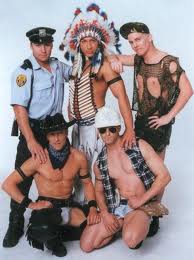
Who knew these guys couldn’t be trusted?
After finishing his time with the U.S. Army, Francisco Gutierrez began recording music. During this time he had the idea of combining a military drill instruction with the Eurodance genre. In the end, this proved popular enough to completely determine his gimmick, the drill instructor Captain Jack.
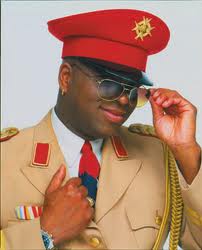
Drop and give me twenty, I guess?
Captain Jack’s music incorporates much of his military experience of shooting things, sexing things, and dancing on things that cannot be shot at or sexed. Backed by his “dance floor army” the music presents a fair and balanced view of the armed forces, as noted below.
Wait a minute, his training consisted of oiled ladies and erotic pillow fights? Where was he stationed and how did he manage to evade a court marshal?!
3.
Chris Gaines
Before Miley Cyrus, there was Garth Brooks.
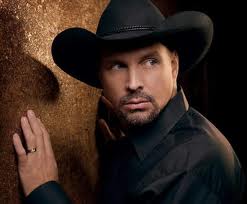
Now you young eighteen to thirty-year old hipsters probably think that country music is the vulgar sounds of drunken violent hicks, and you wouldn’t be that far from the truth. But according to the Recording Industry Artists of America, country music superstar and tall hat enthusiast Garth Brooks is the best selling solo artist in history, surpassing both Elvis and that guy from Dexys Midnight Runners.

How do you sell more albums than this guy? Seriously.
In 1999, Brooks was involved in the development of The Lamb, a movie in which he would star as a brooding alt-rock star struggling to live a private life in the public eye. To promote the album and better explore the rock elements of his music, Brooks began recording an album as the film’s character Chris Gaines. The album, Garth Brooks in… The Life of Chris Gaines, would ultimately serve as the film’s official soundtrack. As the album’s release date drew closer, Gaines began making public appearances and performing on talk shows as well as Saturday Night Live (during an episode in which Brooks himself hosted). How could this possibly go wrong?
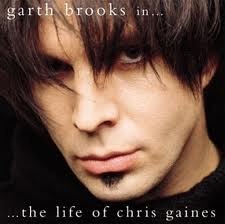
Also, dreamy as balls.
The album was released prior to the movie even being filmed. Sadly, the reception wasn’t quite what had been hoped for: music critics gave it a pass while Garth Brooks fans had no idea what to make of it, believing that buying the album would promote Brooks to adopt the character permanently and forever kill America’s favorite cowboy. Poor sales and the bewildering ignorance of his own fans canceled the movie all together and Gaines never again saw the light of day.







